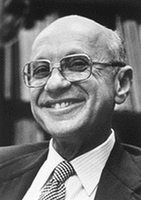Tuesday, November 28, 2006
fractional musings
My first question is then, why does the bank need to give the money to the customer in the first place, instead of "depositing" it themselves, and reaping the full benefit. Then again, I'm not an accountant, nor a banker, so I don't know if these funds are coming from bank profits or from another depositors account, and if from the latter, I would think would just be a wash as far as the total loanable funds and gain the bank perhaps nothing besides another customer.
Can someone help me shed some light on this question?
Sunday, November 26, 2006
styrofoam houses
I thought it worthwhile to bring up again, because to my surprise I have learned that builders have found it economical to construct homes with styrofoam blocks, and poof! - there goes one ridiculous example of market failure!Monday, April 17, 2006
the free market fails to fail
One often hears of the term "market failure" as an excuse for unbridled statist aggression to rob, plunder and steal from herslavesunwilling servant class. It might be used to justify environmental policy; to fund canal digging; bridge, road, and railroad building; etc.
Alas, "there is no such thing as market failure - only lack of private property rights." Hence, externalities are the creature of the mixed markets, those in which government has preempted the common law of liability, with its own ineffective policies, in which some cases is a form of corporate welfare (logging industry, fishing rights, etc.)
Without delving further into the economics though, I'd like to state that such a claim is prima facie fallacious because the very notion that there exists an objective definition of what services and goods that billions of interacting individuals ought to offer one another is preposterous. If that weren't true, I humbly submit that there is a market failure to deliver styrofoam houses, bicycles made from gold, and teleportation machines.Thus said, there is no market failure because one cannot argue that such goods or services ought to be provided by the market, only that they, strictly on a personal basis desire the provision to be made.
More recently though, I came across Prof. Hans-Hermann Hoppe's analysis of public vs. private goods in which he thoroughly ridicules the conceptual distinction.
For one thing, to come to the conclusion that the state has to provide public goods that otherwise would not be produced, one must smuggle a norm into one’s chain of reasoning. Otherwise, from the statement that be cause of some special characteristics of theirs certain goods would not be produced, one could never reach the conclusion that these goods should be produced.
 But with a norm required to justify their conclusion, the public goods theorists clearly have left the bounds of economics as a positive, wertfrei science. Instead they have transgressed into the field of morals or ethics, and hence one would expect to be offered a theory of ethics as a cognitive discipline in order for them to legitimately do what they are doing and to justifiably derive the conclusion that they actually derive. But it can hardly be stressed enough that nowhere in the public goods theory literature can there be found anything that even faintly resembles such a cognitive theory of ethics. Thus it must be stated at the outset, that the public goods theorists are misusing whatever prestige they might have as positive economists for pronouncements on matters on which, as their own writings indicate, they have no authority whatsoever. Perhaps, though, they have stumbled on something correct by accident, without supporting it with an elaborate moral theory? It becomes apparent that nothing could be further from the truth as soon as one explicitly formulates the norm that would be needed to arrive at the above-mentioned conclusion about the state’s having to assist in the provision of public goods. The norm required to reach the above conclusion is this: whenever it can somehow be proven that the production of a particular good or service has a positive effect on someone but would not be produced at all, or would not be produced in a definite quantity or quality unless others participated in its financing, then the use of aggressive violence against these persons is allowed, either directly or indirectly with the help of the state, and these persons may be forced to share in the necessary financial burden. It does not need much comment to show that chaos would result from implementing this rule, as it amounts to saying that everyone can aggress against everyone else whenever he feels like it.
But with a norm required to justify their conclusion, the public goods theorists clearly have left the bounds of economics as a positive, wertfrei science. Instead they have transgressed into the field of morals or ethics, and hence one would expect to be offered a theory of ethics as a cognitive discipline in order for them to legitimately do what they are doing and to justifiably derive the conclusion that they actually derive. But it can hardly be stressed enough that nowhere in the public goods theory literature can there be found anything that even faintly resembles such a cognitive theory of ethics. Thus it must be stated at the outset, that the public goods theorists are misusing whatever prestige they might have as positive economists for pronouncements on matters on which, as their own writings indicate, they have no authority whatsoever. Perhaps, though, they have stumbled on something correct by accident, without supporting it with an elaborate moral theory? It becomes apparent that nothing could be further from the truth as soon as one explicitly formulates the norm that would be needed to arrive at the above-mentioned conclusion about the state’s having to assist in the provision of public goods. The norm required to reach the above conclusion is this: whenever it can somehow be proven that the production of a particular good or service has a positive effect on someone but would not be produced at all, or would not be produced in a definite quantity or quality unless others participated in its financing, then the use of aggressive violence against these persons is allowed, either directly or indirectly with the help of the state, and these persons may be forced to share in the necessary financial burden. It does not need much comment to show that chaos would result from implementing this rule, as it amounts to saying that everyone can aggress against everyone else whenever he feels like it.
Sunday, November 19, 2006
how (not) to end war
Skip offers some evidence for his suspicion of Rangel's ulterior motive:
[Rangel] said having a draft would not necessarily mean everyone called to duty would have to serve. Instead, "young people (would) commit themselves to a couple of years in service to this great republic, whether it's our seaports, our airports, in schools, in hospitals," with a promise of educational benefits at the end of service.Where Señor Oliva doesn't actually finish the complete analysis of Rangel's national enslavement bill, I will.
A. The bill won't accomplish what it is set to; in this case to end the drive for war, since the "national service" draft contains such a broad category of possibilities, giving politicians the peace of mind they need to kill other people's children when their own loved one's will be strategically positioned somewhere in the relative safety of National Guard duties :cough: Bush :cough: or some cushy desk job at the National Propaganda Agency.
B. As a few Mises commenters point out, you don't fight the war machine by enabling easier access to unwilling labor assets.
C. As Tarran brilliantly writes there--
Thus we can safely concur with Señor Oliva and conclude that congresscritter Rangel is not looking to end war, but rather sneak involuntary servitude over the great, brainwashed hoi polloi.If you want to give pause to those who wish to start unpopular wars, the answer is not to force people into the military, but to allow those already in the military to leave more easily!
After all, if my employer orders me to go to my competitors offices and break their legs as they come in for work, I don't have to do it, I can say "cheerio" and quit. Soldiers aren't given that option (in fact they are threatened with death for attempting to quit).
Let's give them that option. I think something like changing the rules so that any soldier can quit, anytime, and they get evacuated after the wounded (if the exigencies of the fighting permit), are transferred to the U.S, and honourably discharged.
Thus, every soldier who risks his or her life would not be doing it because they feel they have no choice, but because they feel the risk is worth it. It would blunt the U.S. government's abilities to conduct offensive operations, but would enhance the U.S. government's ability to conduct defensive operations (should the warlike Canadians ever decide invade us).
Friday, November 17, 2006
RIP Milton Friedman

Of the thirty or so articles I've parsed so far, the most lingering and salient point I've gleaned from Milton's life-long (sometimes inconsistent) struggle for individual freedom, is this:
"In the 1970s, he was a leading advocate for the abolition of the military draft. At one hearing, Friedman became annoyed with a general who likened those in an all-volunteer military to ``mercenaries.'' Friedman told the general that if he insisted on using that term, he would liken draftees to ``slaves.'' The general made a rhetorical retreat."
With his razor-sharp wits at his beck and heed, Milton was certainly nobody's monkey.
Monday, November 13, 2006
frist [born] post
A special shout-out of gratitude goes out to BK Marcus for all his [unsolicited] advice which is greatly appreciated, as well as the cute baby gifts he sent us.









































